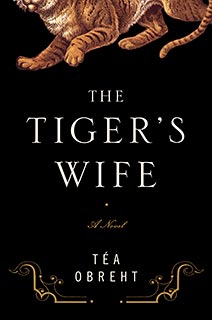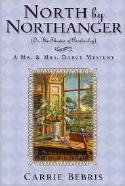This review contains affiliate links, which earn me a small commission when you click and purchase, at no extra cost to you. Thank you for supporting my small business and allowing me to continue providing you a reliable resource for clean book ratings.
Sometimes it is very challenging to explain what a book is about. This is definitely true in the case of The Tiger’s Wife, a novel set in a Balkan country, which compares the post-war world of the present with the war-stricken and folk-tale-infused world of the past, which still bleeds over into the current day.
The basic premise is this: Natalia is a young doctor whose grandfather, who helped to raise her, has just died. When she was a child, the two would go to the zoo to see the tigers. Her grandfather always carried a small worn copy of The Jungle Book with him wherever he went, and he would read aloud to her from it. He also would tell her tales of his life. But he never directly told her the tale of the tiger’s wife; she only hears that from someone else later. He did, however, tell her the story of the deathless man, and the two stories help Natalia to frame her grandfather’s life and the reality of his death.
The book goes between the immediate present, while Natalia is traveling to an orphanage to give vaccinations to children, and the distant past and more recent past, weaving in pieces of the stories of the deathless man and the tiger’s wife. The manner in which the author switches between story lines sometimes seems a bit muddled, which is possibly on purpose. The past informs the present, and Natalia is trying to understand the circumstances of her grandfather’s death even while doing her work and encountering old superstitions still very much alive in the towns she is visiting, as she sifts through her memories of her grandfather and what he told her. Her grandfather was a doctor and a very rational man who believed in science, but at the same time he carried with him these tales.
The reader is allowed the opportunity to see a little bit into the culture of the Balkan nations, one that has its own set of superstitions and folklore, and to get a taste of what it was like for the people of the countries there to be torn apart by war. It may very well make it easier to fully appreciate the story to be well informed about the history of the region, but perhaps not. Either way, there hasn’t been much in popular literature that centers on this area and its history, so Obreht’s contribution is quite welcome.
I feel as if I didn’t quite grasp fully what the true “meaning” of this novel is; I cannot say for sure if it is my failing or the author’s. It would make for a fine book club discussion to get many viewpoints on the story and all of its threads. At any rate, the book is complex and reaches for literary heights; if it seems to fall short at times to some readers, the author can be forgiven because she still accomplishes so much that is admirable and quite impressive.
Rated: High, mostly for language. There are about 10 to 12 uses of strong language and some other instances of milder language. There are a few brief scenes of violence and only brief reference to sex. It felt as if the language in this book was rather unnecessary and didn’t further the story in any way, so it somehow stood out more to me.
Click here to purchase your copy of The Tiger’s Wife on Amazon.




